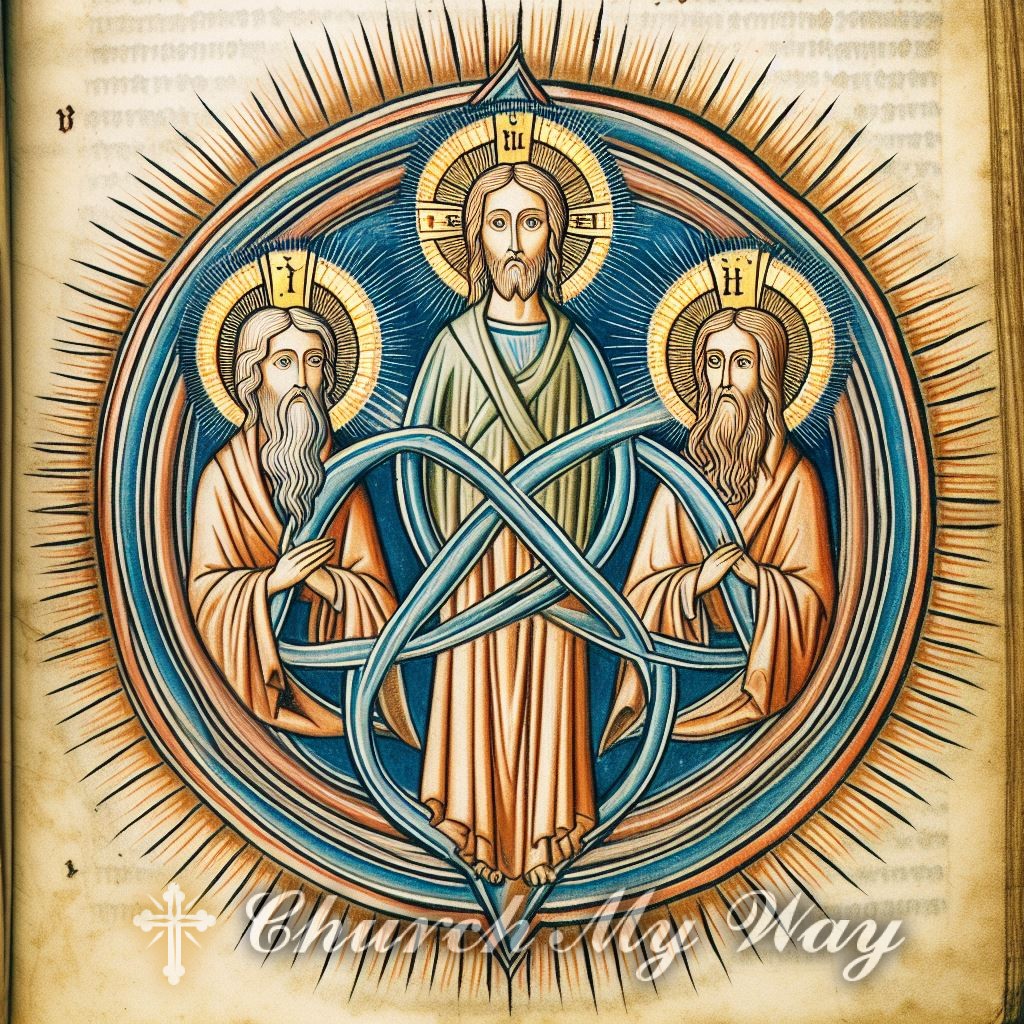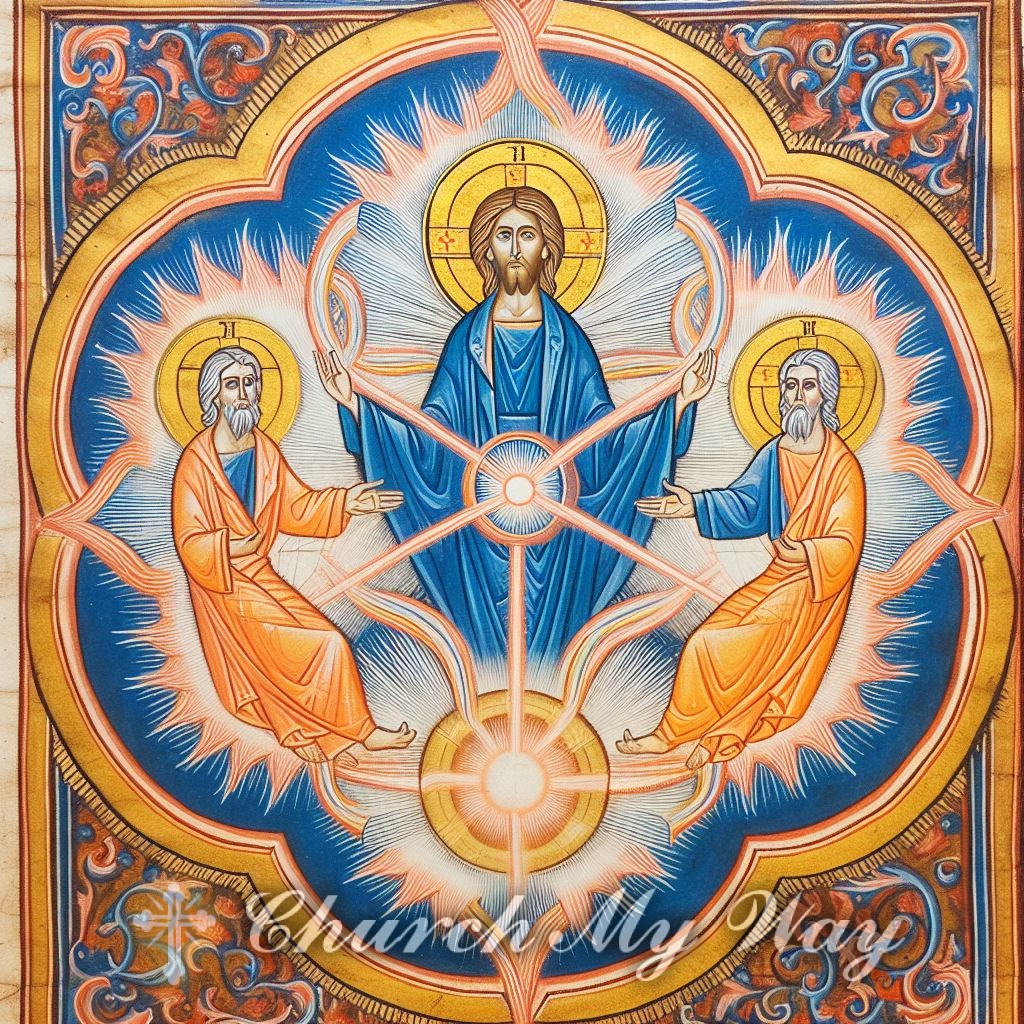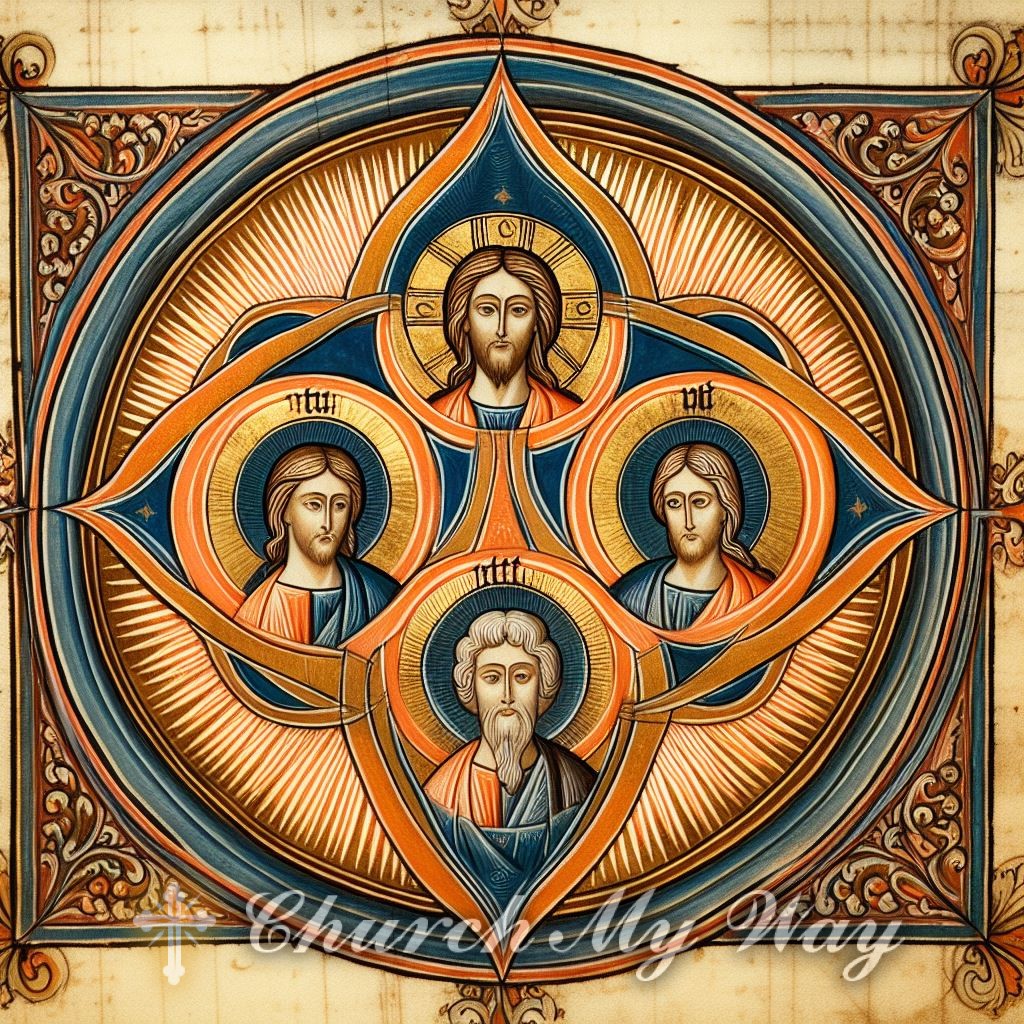What Does the Bible Teach About the Trinity?
The Trinity is one of the most fundamental, yet mysterious, Christian beliefs – that God is three persons, but one God. This concept does not fully make rational sense, yet is found clearly throughout Scripture. As we explore what the Bible says about Father, Son, and Spirit, a picture emerges of unity and distinction that affirms God’s triune nature.
The Old Testament Hints at Plurality in God’s Nature
While the Hebrew Bible emphasizes God’s oneness, it contains clues that this one God exists in plurality.
The most famous example is Genesis 1:26. As God creates humankind He says, “Let us make man in our image, after our likeness.” This use of plurals – “us” and “our” – about God intrigued later Christian theologians as suggesting early hints of the Trinity.
Images portraying God’s “Word” or “Wisdom” also imply God encompasses plurality. Proverbs 8 personifies Wisdom as a creative force alongside God during creation. The “Word was with God” in John 1 echoes this concept of God’s Word/Wisdom actively working alongside Him.
These references begin building the idea of both unity and diversity within the nature of one God.
Jesus Reveals God as Father
Jesus’ most common name for God throughout the Gospels is “Father.” He prays to God as His Father (Matthew 26:39), teaches His followers to pray to “our Father” (Matthew 6:9), and frequently describes doing the Father’s will.
His continual, close interactions with God as Father reveal profound intimacy and unity between them. Jesus also shows His Father so people can know Him: “If you knew me, you would know my Father also” (John 14:7).
To onlookers, Jesus talks of God like no prophet ever had – as one with personal knowledge of God’s thoughts and close relationship. This closeness implies a unity of identity between Jesus and the Father.
The Son as Divine Yet Distinct
While one with the Father, Jesus also carries His own distinct divine identity in the Gospels. He claims authority to forgive sins (Mark 2:10) and receive worship due to God alone (Matthew 14:33).
Most clearly, John 1:1-3 reveals Jesus as the eternal Word who created all things and “was God.” Jesus later affirms His shared glory with the Father “before the world existed” (John 17:5).
In Colossians 1:15-20 Christ’s role in creation and His supreme authority show Him as fully divine, yet God’s “beloved Son.”
Together these references portray Jesus Christ as the rightful Lord, yet in loving submission to His Father. This shows the oneness of divinity and purpose, yet with the distinction between Father and Son.
The Holy Spirit as Personal and Divine
The Holy Spirit first appears visibly in the Bible at Jesus’ baptism, descending as a dove. All four Gospels record this vivid image of Spirit alongside the Father’s voice and the Son in the waters.
Throughout the Book of Acts, the Spirit leads, instructs, and empowers the apostles. His active, personal guidance of the early church continues revealing God’s presence on earth after Christ’s ascension.
In Paul’s letters, the Spirit distributes gifts enabling ministry (1 Corinthians 12), bears internal fruit in believers (Galatians 5), and testifies we are God’s children (Romans 8:14-16). These reflect a personal, relational role.
Like the Son, the Spirit also displays divine attributes: omniscience (1 Corinthians 2:10-11) and omnipresence (Psalm 139:7). He is directly called “God” in Acts 5:3-4.
The Spirit is portrayed not as a vague force, but as a person who teaches, guides, comforts, and sanctifies. Scripture presents Him distinctly from Father and Son, yet fully divine.
The Trinity Together at Jesus’ Baptism
The clearest picture showing the Father, Son, and Spirit simultaneously appears at Jesus’ baptism in the Jordan in all four Gospels:
After being baptized, Jesus came up immediately from the water; and behold, the heavens were opened, and he saw the Spirit of God descending as a dove and lighting on Him, and behold, a voice out of the heavens said, “This is My beloved Son, in whom I am well-pleased.” (Matthew 3:16-17)
All three act distinctly, yet are unified in purpose. The Father affirms and loves the Son, the Spirit anoints the Son, and the Son obeys the Father in humility. This interaction between the Three unveils their eternal relationship.
God is Three in One
Throughout Scripture we see Father, Son, and Spirit – each actively working and relating, each displaying divine attributes, each honored as God individually, yet all spoken of as one God.
There is a mystery here. Our finite minds struggle to reconcile threeness and oneness. Yet Scripture presents this triune nature as the deepest reality of God’s nature.
The Trinity fulfills the truth that God is love through the eternal love and joy shared between Father, Son, and Spirit. Their unity encompasses diversity within itself. As we explore the Bible’s revelation, we discover the truth that God is three persons, but one God.
References:
The Bible contains several key verses that shed light on the doctrine of the Trinity, which describes the three distinct persons of God: God the Father, the Son (Jesus), and the Holy Spirit. Let’s explore some of these verses:
- John 1:1–5:
- “In the beginning was the Word, and the Word was with God, and the Word was God. He was in the beginning with God. All things were made through him, and without him was not anything made that was made. In him was life, and the life was the light of men. The light shines in the darkness, and the darkness has not overcome it.”
- This passage emphasizes the eternal existence of Jesus (referred to as “the Word”) alongside God. It establishes the concept of the Trinity: one true God existing in more than one person.
- 2 Corinthians 13:14:
- “May the grace of the Lord Jesus Christ, and the love of God, and the fellowship of the Holy Spirit be with you all.”
- Here, we see all three persons of the Trinity mentioned together: Jesus Christ, God (the Father), and the Holy Spirit.
- Matthew 28:19:
- “Therefore go and make disciples of all nations, baptizing them in the name of the Father and of the Son and of the Holy Spirit.”
- Jesus instructs His disciples to baptize new believers in the name of the Father, the Son, and the Holy Spirit, emphasizing their unity.
- Isaiah 9:6:
- “For to us a child is born, to us a son is given, and the government will be on his shoulders. And he will be called Wonderful Counselor, Mighty God, Everlasting Father, Prince of Peace.”
- This prophecy refers to Jesus as “Mighty God” and “Everlasting Father,” highlighting His divine nature.
- Colossians 2:9:
- “For in Christ, all the fullness of the Deity lives in bodily form,”
- Paul affirms that Jesus embodies the fullness of God’s nature.






